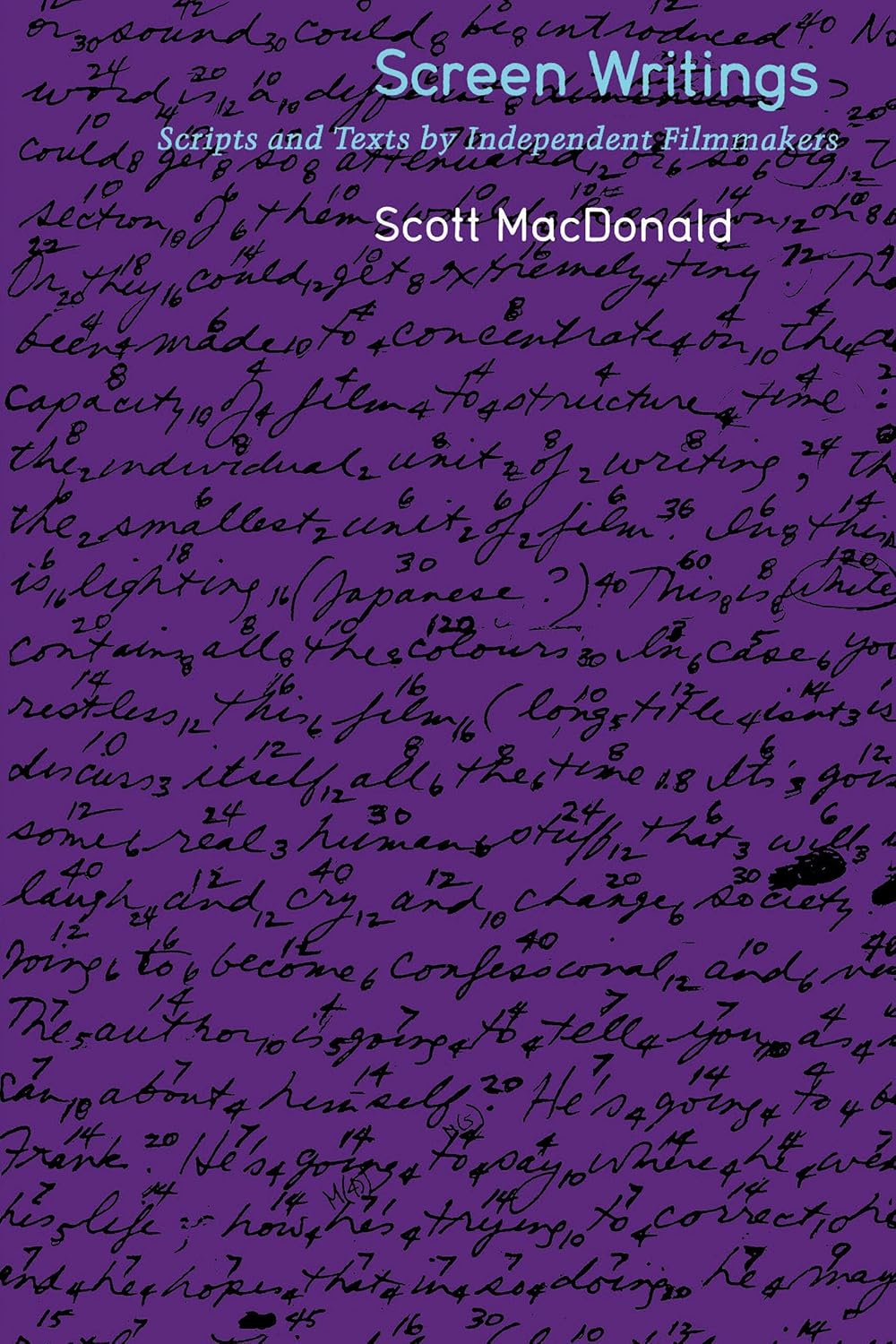Scott MacDonald
Scott MacDonald

University of California Press
Screen Writings
"Ask audience to cut the part of the image on the screen that they don't like. Supply scissors."—Yoko Ono, Tokyo, June 1964
A dazzling range of unconventional film scripts and texts, many published for the first time, make up Scott MacDonald's newest collection. Illustrated with nearly 100 film stills, this fascinating book is at once a reference work of film history and an unparalleled sampling of experimental "language art." It contributes to the very dissipation of boundaries between cinematic, literary, and artistic expression thematized in the films themselves. Each text and script is introduced and contextualized by MacDonald; a filmography and a bibliography round out the volume.
This is a readable—often quite funny—literature that investigates differences between seeing and reading. Represented are avant-garde classics such as Hollis Frampton's Poetic Justice and Zorns Lemma and Morgan Fisher's Standard Gauge, and William Greaves's recently rediscovered Symbiopsychotaxiplasm: Take One. Michael Snow turns film loose on language in So Is This; Peter Rose turns language loose on theory in Pressures of the Text.
Some of the most influential feminist filmscripts of recent decades—Laura Mulvey and Peter Wollen's Riddles of the Sphinx, Su Friedrich's Gently Down the Stream, Trinh T. Minh-ha's Reassemblage, Yvonne Rainer's Privilege—confirm this book's importance for readers in gender and cultural studies as well as for filmmakers and admirers of experimental writing, independent cinema, and the visual arts in general.
And more

Expanded Nature – Écologies du cinéma expérimental
If it can be said that experimental filmmakers are "expanding" the artistic field through an exploration of the potencies, modes of dissemination, or even performance of the moving image, in the Anthropocene age, these practices hope for another kind of expansion: to expand our experience of nature.
Appending flowers to the film strip or burying it in the ground, inventing observation devices, allowing the camera to be affected by natural forces, engaging one's own filming body in a symbiotic relationship with the environment, reconstituting ecosystems at the moment of projection: the ecologies of experimental cinema presented in this book constitute forms of practice and engagement that awaken a heightened sensitivity to the living world through cooperative links, casting other beings as subjects and agents of filmic processes, and, finally, reshaping the economy of filmmaking. Thus, ecologies of perception, medium, production and multinaturalism are deployed, contributing to the restoration of our sensory bond with the natural world.
Addressing technical, aesthetic and anthropological issues of cinema, Expanded Nature – Écologies du cinéma expérimental (Ecologies of Experimental Cinema) considers how filmmakers and collectives from different parts of the globe form communities with other non-human beings and work through their films to deconstruct human privilege. At the crossroads of disciplines, anthropologists, philosophers, filmmakers and artists, and researchers in visual studies come together and investigate a different history of cinema, written from the point of view of nature.
Texts by Elio Della Noce, Scott MacDonald, Jean-Michel Durafour, Kim Knowles, Philip Hoffman & Janine Marchessault, Karel Doing, Chris Dymond, Alice Leroy, Rose Lowder, Chris Welsby, Yaniv Touati, Bidhan Jacobs, Lucas Murari, Teresa Castro, Colectivo Los Ingrávidos, Elizabeth A. Povinelli, Gérard Leblanc, Frédéric Brayard, Jacques Perconte, Vincent Deville, Lukas Brasiskis & Charlie Hewison.